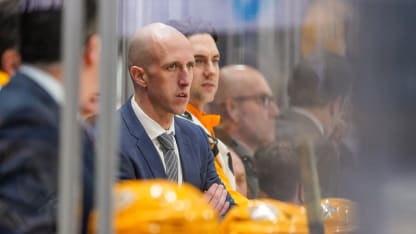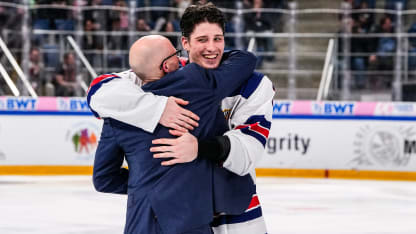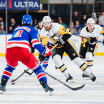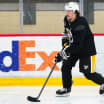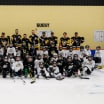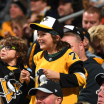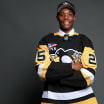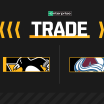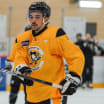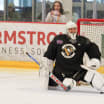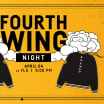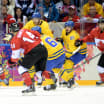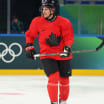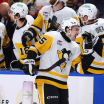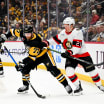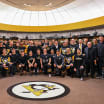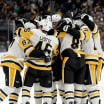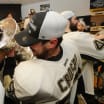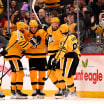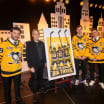Nick Bonino played for Dan Muse in both Nashville and New York, where the new Penguins head coach was an assistant under Peter Laviolette. “Love Muser,” said Bonino, a two-time Stanley Cup Champion with Pittsburgh.
Nick and his wife Lauren, who met playing college hockey at Boston University, were just showing some friends a few photos of a past Halloween costume inspired by Dan.
“I got hurt that year and was out for a stretch, and Muser was the guy who would bag skate me,” Nick said. “Since Lauren can skate so well, I just thought one day, like, man, it’d be pretty funny if we could do something like that.”
So, Lauren – “the real hero of the story” – put on a bald cap and dressed as Nick, who dressed as Dan. They wore rollerblades to reenact those sessions on the injured ice.
“I knew Muser’s a guy who would love that,” Nick said. “He would get asked for autographs, thinking that I was him. He'd come into the room and be like, it happened again, Bones! And everyone would laugh. So, it was just a perfect costume. He thought it was funny, too, which was the best part.”
That’s one example of Muse’s proven ability to connect with players at all stages of their careers. It will serve him well in this new chapter of his.
“He’s just a good person,” Bonino said. “I think that's always the most important thing. Like, you can tell he cares about you. He’s a great family man. In New York, we had our kids at the same hockey program, and we're talking about the PK and just talking about life. So, he's always there. I think it probably starts with that.
“And he just really cares about his job. You don't meet many guys who work harder than Dan Muse. He would be at the rink at crazy hours. Just really put everything he had into the team, and I think that's what's brought him so much success and made him so deserving of this opportunity.”

